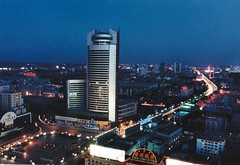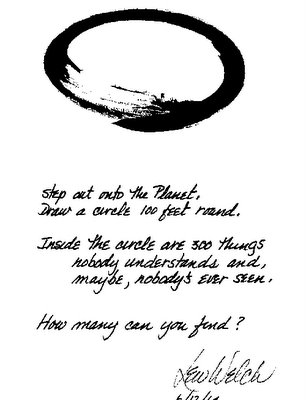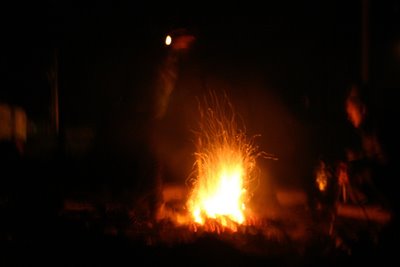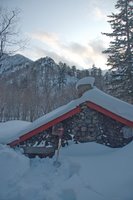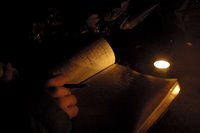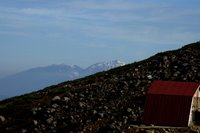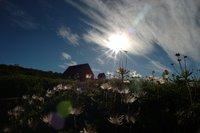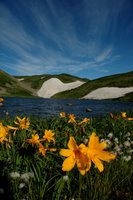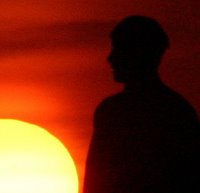Sleeping in the Gutters #3 - The Gas Man
 This is the third installment of "Sleeping in the Gutters" by Muff Richardson. Sleeping in the Gutters will appear around once a month in this space. You can contact the author at muffrichardson@yahoo.com. All comments and queries are welcome, but he especially hopes to hear from "any birds that's not too particular like." To read about how I met Muff, click on this link. Finally, please remember that any opinions and vulgarities in "Sleeping in the Gutters" do not necessarily reflect my own views.
This is the third installment of "Sleeping in the Gutters" by Muff Richardson. Sleeping in the Gutters will appear around once a month in this space. You can contact the author at muffrichardson@yahoo.com. All comments and queries are welcome, but he especially hopes to hear from "any birds that's not too particular like." To read about how I met Muff, click on this link. Finally, please remember that any opinions and vulgarities in "Sleeping in the Gutters" do not necessarily reflect my own views. The Gas Man
By Muff Richardson
Some buck-toothed bald clown from my prefecture's Jap gas company turned up on my doorstep about 2 weeks ago, claiming, in Japanese, that I'd telephoned his HQ that morning and asked for an engineer to come and check my gas bathroom fittings as something was amiss.
I told the daft c*nt that I had made no such phone call and, furthermore, I didn't have any "gas fittings" in my f*cking bathroom, as it's all electric water heaters in my joint. He looked baffled. He asked if I was sure it wasn't me who'd telephoned, and I assured him that I was sure of that fact. He did not look satisfied, his face rather wearing the expression of a man who has lost a pound and found a shilling.
I asked him to show me the wee logbook he was holding so I could check the name and address of the cat whose cage he was meant to be rattling. He showed me the book and, true enough, it was my pad's address, but - aha! - the handle of the character who'd called the gas lads was Furuta, written in kanji next to my address. I told him I wasn't Furuta, that there were no Furutas in my apartment and none in the building according to the nameplates on the mailboxes downstairs. All of this intercourse was conducted in unbroken Japanese, took about 5 minutes.
He seemed to think I was perhaps fibbing or concealing the truth: a reasonable assumption since it was a nice early spring day and I clearly had nothing better to do than stand in my doorway and chat with a stranger whose rancid halitosis would have floored lesser men than me at 5 paces. Accordingly, he asked if he might come in to check my bathroom anyway, "just in case". I told him cordially to piss off. He sighed and continued to look somewhat down in the mouth and started sucking air loudly through his teeth. As if his very life depended on the answer, he then asked, again, if or not I had rung the gas company. I answered, again, that I most certainly had not.
Still perplexed, and smelling a rat, realising he was dealing with a fresh-off-the-banana-boat gaijin who couldn't understand Japanese, even though we had been conversing without hitch in that language for over 5 minutes, he put down his log book on the ground. He then very helpfully and very grandly extended his pinkie and thumb whilst clenching the other 3 digits of his right hand. He held this telephone receiver-aping hand gesture up to his right ear and waggled it about a bit whilst trilling in badly enunciated English "Telephone... telephone...". He then helpfully raised his left hand and pointed his forefinger at my chest, modifying his chant now to "Telephone... you...telephone... no?" in a tone of voice clearly interrogative in texture.
At this, I immediately realised what he was saying, and apologisingly admitted that, oh yes, I had in fact telephoned his company earlier that day, claimning that my name was Furuta and requesting that a dentally-challenged workman be hastily dispatched to my residence to investigate a faulty gas connection in my all-electric bath and shower room.
Well, I didn't really. I simply guffawed with laughter, shook my head and slammed the door in his face.
It makes you think.
Muff
.........Sleeping in the Gutters will appear around twice a month in this space. You can contact the author at muffrichardson@yahoo.com. All comments and queries are welcome, but he especially hopes to hear from "any birds that's not too particular like." Finally, please remember that any opinions and vulgarities in "Sleeping in the Gutters" do not necessarily reflect my own views...........
